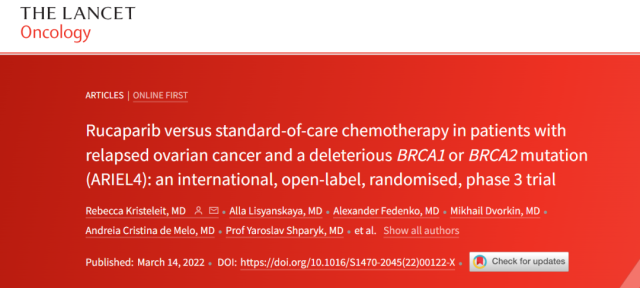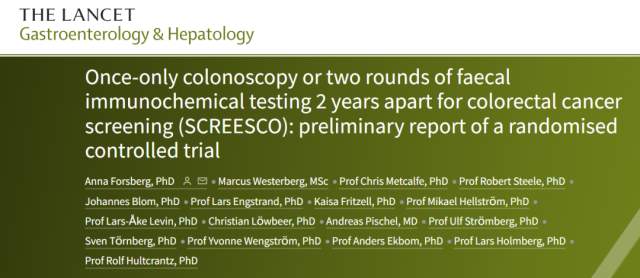Lucaparib as an Alternative to Standard Chemotherapy for BRCA1/2 Mutant Recurrent Ovarian Cancer
- Normal Liver Cells Found to Promote Cancer Metastasis to the Liver
- Nearly 80% Complete Remission: Breakthrough in ADC Anti-Tumor Treatment
- Vaccination Against Common Diseases May Prevent Dementia!
- New Alzheimer’s Disease (AD) Diagnosis and Staging Criteria
- Breakthrough in Alzheimer’s Disease: New Nasal Spray Halts Cognitive Decline by Targeting Toxic Protein
- Can the Tap Water at the Paris Olympics be Drunk Directly?
Lucaparib as an Alternative to Standard Chemotherapy for BRCA1/2 Mutant Recurrent Ovarian Cancer
- Should China be held legally responsible for the US’s $18 trillion COVID losses?
- CT Radiation Exposure Linked to Blood Cancer in Children and Adolescents
- FDA has mandated a top-level black box warning for all marketed CAR-T therapies
- Can people with high blood pressure eat peanuts?
- What is the difference between dopamine and dobutamine?
- How long can the patient live after heart stent surgery?
Lucaparib as an Alternative to Standard Chemotherapy for BRCA1/2 Mutant Recurrent Ovarian Cancer.
The Lancet Oncology: Lucaparib can replace standard chemotherapy in patients with recurrent and BRCA1/2-mutated ovarian cancer; PD-1/TIGIT dual antibody application for clinical trials |
Key points
1. Lancet Oncol: rucaparib as an alternative to standard chemotherapy in patients with recurrent and BRCA1- or BRCA2-mutated ovarian cancer
2. Lancet Gastroenterol Hepatol: Can colonoscopy alone or two rounds of stool immunochemical testing separated by 2 years for colorectal cancer be considered population-based screening?
3. New drug: PD-1/TIGIT bispecific antibody is applied for clinical application in China
4. New drug: another domestic anti-PD-1 monoclonal antibody, the new indication marketing application of sepalimab has been accepted
Lancet Oncology: Lucaparib as an Alternative to Standard Chemotherapy for BRCA1/2 Mutant Recurrent Ovarian Cancer
Currently, there are few prospective studies comparing poly(ADP-ribose) polymerase (PARP) inhibitors with chemotherapy in the treatment of BRCA1- or BRCA2-mutated ovarian cancer.
The results of the ARIEL4 study comparing lucaparib with standard chemotherapy in patients with BRCA1 or BRCA2-mutated recurrent ovarian cancer were published in The Lancet Oncology.
Results from the ARIEL4 study support rucaparib as an alternative to chemotherapy in patients with recurrent, BRCA1- or BRCA2-mutated ovarian cancer.

The open-label, randomized, controlled, phase III study, conducted at 64 hospitals and cancer centers in 12 countries, enrolled patients with BRCA1- or BRCA2-mutated ovarian cancer.
These patients were over 18 years of age, had an ECOG status score of 0 or 1, and had received 2 or more prior chemotherapy regimens.
Eligible patients were randomly assigned (2:1) to receive oral lucaparib (600 mg twice daily) or chemotherapy (administered according to institutional guidelines).
Platinum-resistant and partially platinum-sensitive patients in the chemotherapy group received paclitaxel (starting dose 60-80 mg/m2 on days 1, 8, and 15), and platinum-sensitive patients received platinum-containing chemotherapy (cisplatin or carboplatin). platinum single-agent, or platinum-based doublet chemotherapy).
The primary endpoint was investigator-assessed progression-free survival (PFS).
Finally, 349 eligible patients were randomly assigned to rucaparib (n = 233) or chemotherapy (n = 116).
The median age was 58 years (IQR 52-64), 332 (95%) patients were white, and the median follow-up was 25.0 months (IQR 13.8-32.5). In the response population (220 patients in the rucaparib group; 105 in the chemotherapy group), the median PFS was 7.4 months (95% CI: 7.3-9.1) in the rucaparib group and 5.7 months in the chemotherapy group ( 95% CI: 5.5-7.3) (HR: 0.64; 95% CI: 0.49-0.84; p=0.0010).
In the intention-to-treat population (233 in the rucaparib group; 116 in the chemotherapy group), median PFS was 7.4 months (95% CI: 6.7-7.9) in the rucaparib group compared with 5.7 months in the chemotherapy group (95% CI: 5.5-6.7) (HR: 0.67; 95% CI: 0.52-0.86; p=0.0017).
Most treatment-emergent adverse events were grade 1 or 2, and the most common adverse events of grade 3 or more were anemia or hemoglobin reduction in 52 (22%) in the rucaparib group and 6 in the chemotherapy group (5 (5). %).
Lancet Gastroenterol Hepatol: Is a colonoscopy alone or two rounds of stool immunochemistry at 2-year intervals for colorectal cancer screening as population-based screening? Preliminary report published
Screening for colorectal cancer can be done with lower gastrointestinal endoscopy or stool testing.
But there is little evidence that a one-time colonoscopy reduces colorectal cancer mortality.
Preliminary results of this study to investigate the effect of a single colonoscopy or two fecal immunohistochemical (immunohistochemical) screenings on colorectal cancer mortality and morbidity were published recently in The Lancet – Gastroenterology and Hepatology”.
Preliminary results suggest that if subsequent data show a benefit on disease-specific mortality, only one colonoscopy and two fecal immunohistochemical screenings could be applied to screening a broad population.

This study was a randomized controlled trial conducted in Sweden (Swedish Colon Screening SCREESCO). Subjects were assigned to one colonoscopy only, two rounds of fecal immunochemical testing (OC-Sensor; 2-year interval), or a control group (no intervention; standard diagnostic pathway), with the ratio of colonoscopy to control The ratio of fecal immunohistochemical test to control group was 1:2. The primary endpoint of the trial was colorectal cancer mortality and morbidity.
A total of 278,280 people were included in the study, including 31,140 in the colonoscopy group, 60,300 in the stool immunohistochemical test group, and 186,840 in the control group. In the intent-to-screen analysis, colorectal cancer was detected in 49 of 31,140 (0.16%) in the colonoscopy group compared with 121 of 60,300 (0.20%) in the stool immunohistochemistry group (RR: 0.78; 95% CI: 0.56-1.09). Advanced adenomas were detected in 637 (2.05%) in the colonoscopy group and in 968 (1.61%) in the stool immunochemical test group (RR: 1.27; 95% CI: 1.15–1.41).
Colonoscopy revealed more right-sided advanced adenomas than stool immunohistochemistry. In terms of safety, among 16,555 colonoscopies, there were 2 perforations and 15 major bleeding. No deaths related to the intervention occurred.
references:
[1].Rebecca Kristeleit, et al. Rucaparib versus standard-of-care chemotherapy in patients with relapsed ovarian cancer and a deleterious BRCA1 or BRCA2 mutation (ARIEL4): an international, open-label, randomised, phase 3 trial.Lancet Oncol.
https://www.thelancet.com/journals/lanonc/article/PIIS1470-2045(22)00122-X/fulltext
[2].Anna Forsberg, et al. Once-only colonoscopy or two rounds of faecal immunochemical testing 2 years apart for colorectal cancer screening (SCREESCO): preliminary report of a randomised controlled trial. Lancet Gastroenterol Hepatol.
https://www.thelancet.com/journals/langas/article/PIIS2468-1253(21)00473-8/fulltext
Lucaparib as an Alternative to Standard Chemotherapy for BRCA1/2 Mutant Recurrent Ovarian Cancer
(source:internet, reference only)
Disclaimer of medicaltrend.org
Important Note: The information provided is for informational purposes only and should not be considered as medical advice.



